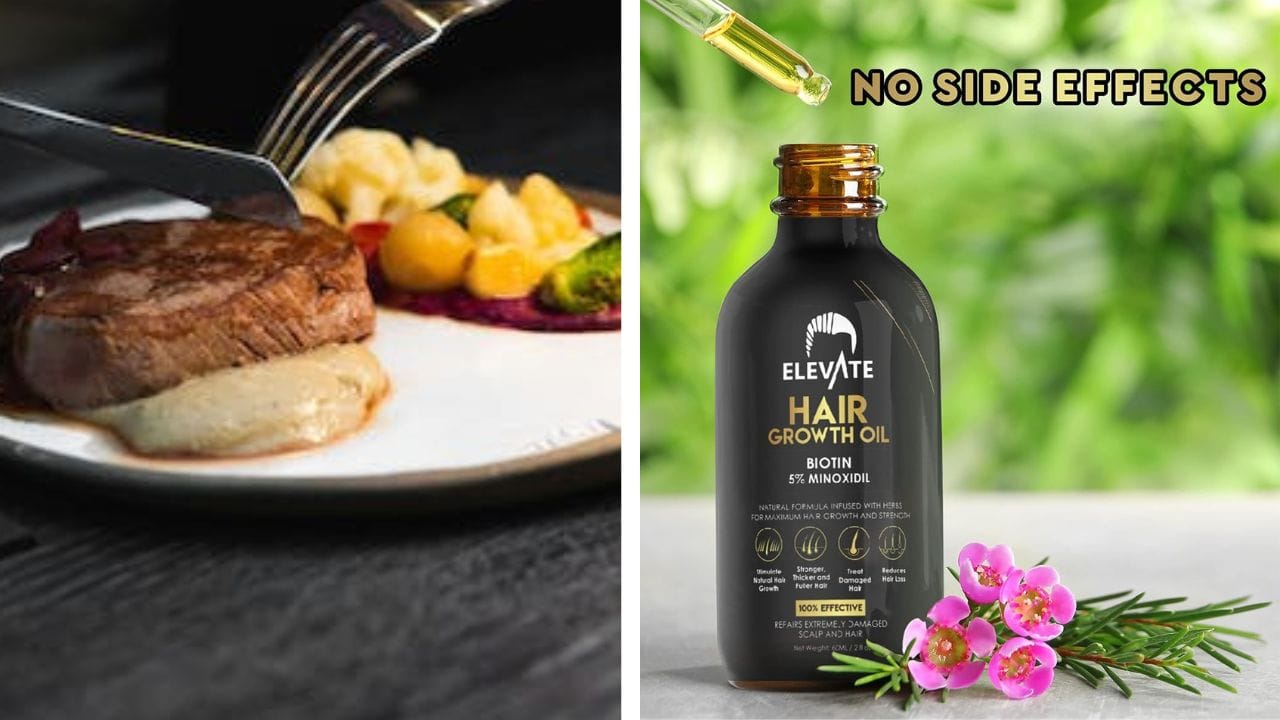Nourishing Your Locks from Within: Foods to Eat for Healthy Hair Before Using Hair Loss Serum!
Embarking on a journey to lush, radiant locks involves more than just external treatments – your diet plays a crucial role too!

The Foundation of Hair Health: Understanding the Basics
Before diving into the specifics of what to eat for hair health, it's essential to understand why nutrition is so crucial. Hair is made of protein, so ensuring adequate protein intake is fundamental for hair strength and growth. Additionally, certain vitamins and minerals play a significant role in hair follicle health and can prevent hair loss.
Key Takeaways:
- A balanced diet rich in specific nutrients can significantly improve hair health.
- While waiting to apply hair loss serum, incorporating certain foods can provide the necessary support for hair growth and strength.
- Understanding the connection between diet and hair health can empower individuals to make informed choices that benefit their hair.
Protein: The Building Block of Hair
Protein is the main component of hair, so it's no surprise that it's at the top of the list for hair health. Foods like chicken, turkey, fish, dairy products, and legumes are excellent sources of protein that can help strengthen hair strands and promote hair growth.
Iron: The Hair Growth Mineral
Iron deficiency is a common cause of hair loss, particularly in women. Including iron-rich foods such as red meat, spinach, lentils, and pumpkin seeds in your diet can help maintain healthy hair growth and prepare your scalp for the application of hair loss serum.
Vitamin C: The Iron Absorption Enhancer
Vitamin C not only helps with iron absorption but also is involved in collagen production, which is crucial for hair strength. Citrus fruits, strawberries, and bell peppers are great sources of vitamin C that can complement your hair care routine.
Omega-3 Fatty Acids: For Scalp Health
Omega-3 fatty acids are vital for a healthy scalp and can be found in fatty fish like salmon, mackerel, and sardines. Flaxseeds and walnuts are also good plant-based sources of omega-3s, which can help improve hair density and decrease hair loss.
Zinc: The Hair Repair Nutrient
Zinc plays a role in hair tissue growth and repair. It also helps keep the oil glands around the follicles working properly. Foods high in zinc include oysters, beef, spinach, and pumpkin seeds, which can be beneficial when using hair loss serum.
Biotin: The Hair Strength Vitamin
Biotin, or vitamin B7, is well-known for its hair-strengthening properties. Eggs, almonds, and whole grains are rich in biotin and can support hair health, reducing the brittleness that often precedes hair loss.
Vitamin E: The Antioxidant for Hair Protection
Vitamin E has antioxidant properties that can help protect the scalp and hair from damage. Sunflower seeds, almonds, and spinach are all excellent sources of vitamin E, which can enhance the effectiveness of hair loss serum.
Selenium: A Trace Mineral for Hair
Selenium is a trace mineral that can help prevent hair loss. It's found in Brazil nuts, tuna, and eggs. However, it's important to consume selenium in moderation, as too much can have adverse effects.
Vitamin A: For Sebum Production
Vitamin A is necessary for the production of sebum, which moisturizes the scalp and keeps hair healthy. Carrots, sweet potatoes, and kale are rich in beta-carotene, which the body converts into vitamin A.
The Role of Water in Hair Health
Staying hydrated is essential for maintaining healthy hair, as dehydration can lead to dry and brittle strands. Ensure you're drinking plenty of water throughout the day to support your hair health and the efficacy of hair loss serum.
A Balanced Diet: The Key to Comprehensive Hair Care
While specific nutrients are highlighted for their benefits to hair health, it's important to maintain a balanced diet. A variety of fruits, vegetables, whole grains, lean proteins, and healthy fats can provide a comprehensive nutrient profile that supports overall health, including that of your hair.
Foods to Eat for Healthy Hair Before Using Hair Loss Serum
In summary, while you're waiting to apply hair loss serum, focusing on a nutrient-rich diet can significantly support your hair health. Incorporating a variety of proteins, iron, vitamins C and E, omega-3 fatty acids, zinc, biotin, selenium, vitamin A, and staying hydrated can all contribute to stronger, healthier hair.
Remember, a balanced diet is the foundation of comprehensive hair care, and these dietary changes can enhance the benefits of hair loss serum when you begin its application. So if you believe you have a nutrient-rich diet and that your diet is balanced enough then click the button below to see which hair loss serum products that we have selected for you!

